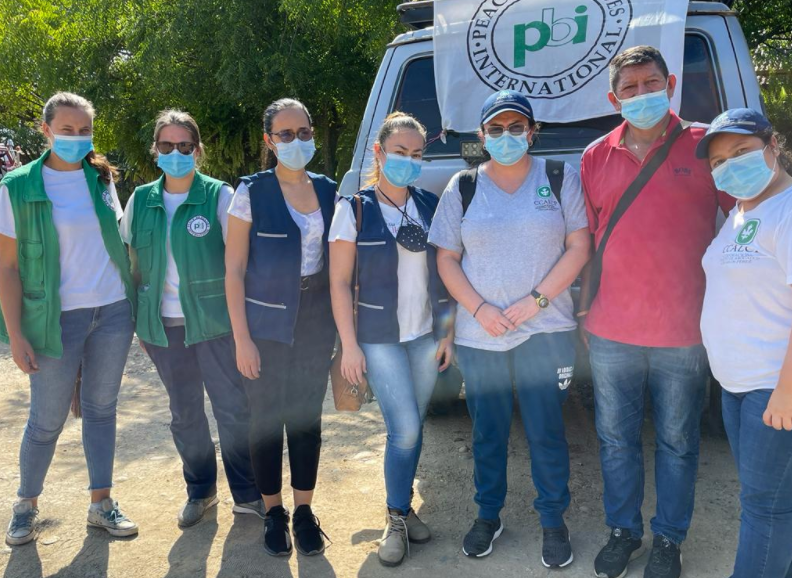
On December 3, 2021, PBI-Colombia accompanied CCALCP to Caño Indio, Catatumbo, for a meeting with communities included in the guardianship actions.
In March 2021, CCALCP tweeted: “Breaches of the National Comprehensive Program for the Substitution of Illicit Crops (PNIS) in Catatumbo will be studied by the Constitutional Court in a guardianship review filed by CCALCP together with [other organizations].”
Now, Aljazeera reports: “Rights groups and politicians in Colombia have welcomed a decision by the country’s Constitutional Court, which ruled this week that the government failed to consult local communities over its plan to restart aerial fumigation of coca crops.”
That article highlights: “In a decision on Wednesday [January 20], the court said the government of President Ivan Duque could not at this stage move forward with plans to carry out aerial spraying with herbicide glyphosate. It said Bogota must first adequately consult with communities that could be affected.”
Pedro Arenas, director of Viso Mutop, a think-tank that promotes drug policy reforms across Colombia, says: “The most significant thing about this [ruling] is that the court is protecting various rights that rural farmers, Indigenous and Black communities have.”
The article also notes: “The court’s order means Colombian authorities will have to carry out a consultation process with communities in six planned fumigation areas, which cover 104 municipalities across 14 departments. Government agencies will have one year, extendable by six months, to complete this process.”
The Peace Brigades International-Colombia Project has accompanied the Bucaramanga-based CCALCP since 2006.

